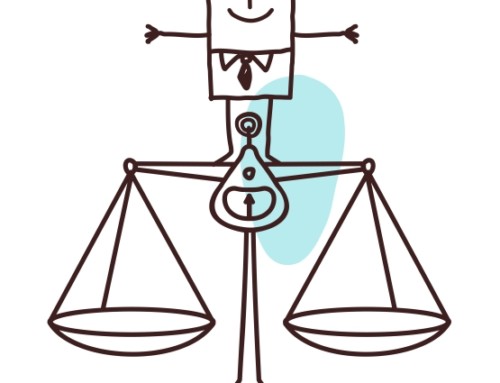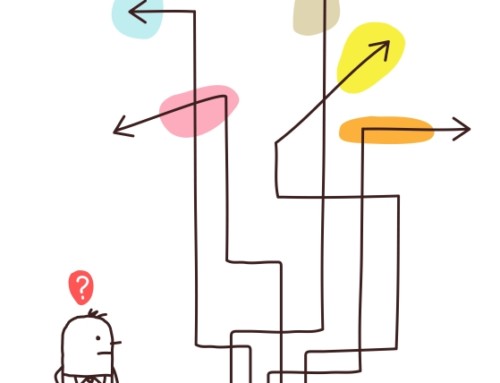In this article, I discuss a tool you can use to feel better by changing your thinking when you’re dwelling on negative thoughts.
If you’re like me, you sometimes find yourself ruminating—dwelling on negative thoughts which lead to you to feel upset. For example, you can ruminate on worrisome thoughts leading you to experience intense anxiety such as “I’m going to get fired” and “I won’t be able to cope with this situation”. Ruminating thoughts such as “Nobody cares about me” can fuel sadness. You can ruminate on thoughts which lead to strong anger such as “She is such an selfish person”, on thoughts which drive frustration such as “I’m not making any progress in my career” and on thoughts driving guilt or shame such as “It’s all my fault” and “I’m a bad father”–the latter thought was ruminated on by Jim Carrey’s character in the movie Liar Liar.
Ruminating: It’s like repeatedly banging your head against a wall
From reading the examples, you are likely detecting a pattern which is present when we ruminate: We go over negative thoughts in our minds repeatedly and these negative thoughts lead us to experience emotions at an unpleasant and often intense level. People can go on ruminating for several minutes or longer with negative effects on their emotional well-being. I often refer to ruminating as akin to repeatedly banging your head against a wall. In the latter case, you repeatedly inflict physical pain on yourself. When you ruminate, you repeatedly inflict emotional pain on yourself.
The negative cycle of ruminating often gets started by a negative situation we experience such as argument, not doing well at some activity, finding out some bad news or being faced with an upcoming difficult situation. It often occurs when you’re by yourself as this gives you more opportunity to be alone with your thoughts, particularly negative thoughts on which you are susceptible to ruminate.
Targeting the hot thoughts on which you are ruminating
One of the best ways to stop ruminating is to do a thought record—a tool featured in the book Mind Over Mood by Drs. Dennis Greenberger and Christine Padesky. At times when I notice I am ruminating I often say to myself, “I have to do a thought record.” When I have finished the thought record, I feel a lot better and am much less likely to ruminate.
Thought records work by targeting the ‘hot thoughts’ on which we tend to ruminate. Hot thoughts have two main features: (1) They lead us to experience emotions like those I mentioned at a strong and uncomfortable level of intensity; (2) They typically contain cognitive distortions—thinking patterns which lead us to view a situation in an overly negative manner. Among the cognitive distortions are seeing things in all-or-nothing or black and white terms, focusing only on the negative elements of a situation, jumping to conclusions, mind-reading (assuming other people are thinking something—usually something negative–without sufficient evidence), assuming that negative events are likely to occur despite a lack of evidence and assuming you will not be able to cope with a current or upcoming challenge.
Changing hot thoughts to balanced thoughts leads to less ruminating
Doing a thought record involves identifying the hot thoughts on which you are ruminating and changing these thoughts to thoughts which are ‘less hot’. That is, using evidence to evaluate the accuracy of hot thoughts allow you to change these thoughts from those which contain distortions to ‘balanced thoughts’ which are more accurate. Doing so typically results in a substantial decrease in the intensity of emotions which were fuelled by the hot thoughts on which you had been ruminating. In turn, your tendency to ruminate decreases.
I have helped many clients use thought records to decrease their ruminating in my work as a Calgary psychologist and a Cochrane psychologist. Thought records can help you address your ruminating tendencies whether you are using them in depression counselling, anxiety counselling, anger management counselling, stress counselling, eating disorders counselling, self-esteem counselling, trauma counselling, or addiction counselling. A psychologist who specializes in cognitive behavioural therapy (CBT) can teach you this valuable skill which you can use as a life-long antidote to ruminating.
May you add thought records to your anti-ruminating tool belt,
-Dr. Pat






Leave A Comment